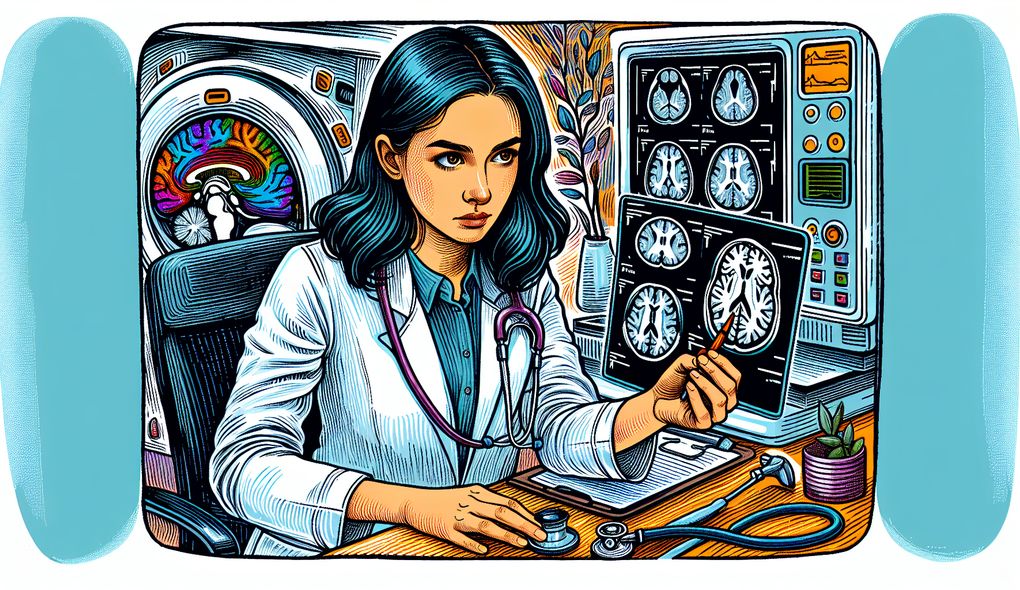Tell me about a time when you had to handle a medical emergency involving a patient with a neurological disorder.
INTERMEDIATE LEVEL

Sample answer to the question:
During my time working as a Neuroscience Nurse Practitioner, I encountered a medical emergency involving a patient with epilepsy. The patient experienced a severe seizure that lasted longer than usual, and their vital signs began to deteriorate. I quickly assessed the situation and called for assistance from the medical team. I ensured that the patient was in a safe environment, cleared any nearby objects that could cause harm, and provided initial first aid measures. I communicated effectively with the team, providing them with essential information about the patient's condition and medical history. Together, we implemented the appropriate emergency protocols and administered emergency medications to control the seizure. I closely monitored the patient's vital signs and neurological status throughout the episode, documenting all interventions and responses in the electronic medical records. Once the seizure was brought under control, I continued to provide supportive care and closely monitored the patient's progress until they stabilized. Following the incident, I conducted a thorough review of the situation with the team, identifying areas for improvement and implementing strategies to prevent similar emergencies in the future.
Here is a more solid answer:
During my time working as a Neuroscience Nurse Practitioner, I encountered a medical emergency involving a patient with Parkinson's disease. The patient suddenly experienced worsening symptoms, including severe tremors and difficulty breathing. I immediately accessed the patient's electronic medical records to review their medical history and current medications. Based on this information, I identified a potential drug interaction that could have contributed to the worsening symptoms. I promptly communicated this finding to the medical team and collaborated with them to make necessary adjustments to the patient's medication regimen. While waiting for the adjustments to take effect, I implemented immediate supportive measures to alleviate the patient's distress, such as repositioning and providing oxygen therapy. I closely monitored the patient's vital signs, continuously documenting the interventions and responses in the electronic medical records. The patient's condition gradually improved, and I coordinated with physical and occupational therapists to develop a rehabilitation plan to address the new challenges posed by the episode. I also took the opportunity to educate the patient and their family about strategies to prevent and manage similar situations in the future, emphasizing the importance of adhering to medication regimens and promptly reporting any changes in symptoms.
Why is this a more solid answer?
The solid answer provides more specific details about how the candidate used electronic medical records and healthcare IT systems to handle the medical emergency involving a patient with a neurological disorder. It demonstrates their ability to assess and analyze patient information in real-time, identify potential issues, and collaborate with the medical team to make necessary adjustments. However, it would be beneficial to include more examples of critical thinking and problem-solving abilities, as well as their proficiency in communication and interpersonal skills.
An example of a exceptional answer:
During my time working as a Neuroscience Nurse Practitioner, I encountered a medical emergency involving a patient with multiple sclerosis (MS). The patient presented with a sudden exacerbation of symptoms, including severe muscle weakness and difficulty speaking. Recognizing the urgency of the situation, I immediately accessed the patient's electronic medical records to gather information about their medical history, previous treatment responses, and any relevant allergies. This allowed me to quickly rule out any possible contraindications and develop an appropriate plan of action. I communicated with the medical team, clearly articulating the patient's current condition, the urgency of the situation, and the need for immediate intervention. Together, we coordinated a multidisciplinary approach to the patient's care, involving neurologists, respiratory therapists, and rehabilitation specialists. I supervised the administration of intravenous corticosteroids to reduce inflammation and facilitate symptom resolution. Simultaneously, I closely monitored the patient's respiratory function, ensuring that they received appropriate ventilatory support when needed. Throughout the emergency, I reassured and comforted the patient, addressing their concerns and answering any questions they had. To prevent future emergencies, I initiated a discussion within the healthcare team about the importance of early intervention and comprehensive care planning for patients with multiple sclerosis.
Why is this an exceptional answer?
The exceptional answer showcases the candidate's ability to handle a complex medical emergency involving a patient with multiple sclerosis. It demonstrates their advanced clinical expertise, critical thinking, and problem-solving abilities. The candidate effectively utilized electronic medical records to gather essential patient information and collaborate with the medical team. Additionally, their strong communication and interpersonal skills are evident through their clear articulation of the patient's condition and collaboration with various healthcare professionals. The answer could be further improved by including specific examples of leadership and mentoring skills, as well as their commitment to continuing education and professional development.
How to prepare for this question:
- Review and familiarize yourself with the common neurological emergencies and their management protocols.
- Refresh your knowledge on the use of electronic medical records and healthcare IT systems specific to neurology and patient care.
- Evaluate your critical thinking and problem-solving abilities through practice scenarios and case studies involving neurological emergencies.
- Enhance your communication and interpersonal skills by engaging in role-playing exercises and seeking feedback from colleagues.
- Stay updated with the latest advancements in neurology nursing practices by attending continuing education courses, conferences, or participating in relevant research.
What are interviewers evaluating with this question?
- Strong clinical skills in neurology and patient care.
- Excellent communication and interpersonal skills.
- Critical thinking and problem-solving abilities.
- Proficiency in electronic medical records and healthcare IT systems.

